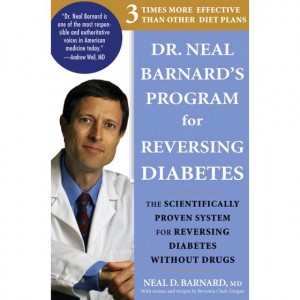Aug 9, 2007, Vol. V Issue 16
Dear Friends,
Summer is a busy time for those of you still planning fall events and going into planning for 2008. Yet it’s a slow time for actual events. So, in the next few issues, I thought I’d take this opportunity to highlight a few speakers we’ve added to our website. Due to increasing interest and demand, we’re expanding our diabetes, heart health, nutrition and cancer event speakers, along with my favorite category of women’s health/humorous motivational speakers. Also, I have a huge backlog of more speakers I’m getting ready to add, so please give us a call or email if you’re looking for something or someone and don’t see it on our website. We just may have the answer and haven’t posted it yet. As always, I don’t post a speaker until I’ve checked them out thoroughly, and preferably, experienced them personally. I’m really picky, because I know you are, too.
Meantime, it’s time for a nature break. I’m off to the woods next week for vacation!
Neal Barnard, MD:
Reversing Diabetes
It’s no secret. Diabetes is a life-threatening disease reaching epidemic levels around the world. More than 20 million Americans have type 2 diabetes; worldwide about 200 million people suffer from it. And, in recent years, because of obesity and terrible eating habits, a surprising number of our nation’s children are being diagnosed with it – although, up until now, it has always been seen as an adult disease.
A diagnoses of type 2 diabetes is often a grim precursor to heart disease, kidney failure, stroke, nervous system damage and other life-threatening complications. This risk of premature death among people with diabetes is about twice that of people without the disease.
 Nutrition researcher Neal Barnard, MD, says it doesn’t have to be that way. In his book, Dr. Neal Barnard’s Program for Reversing Diabetes, based on his recently published research, he explains that many of the people suffering from diabetes could dramatically improve their condition, not just manage it as most treatment programs aim to. The book, published in January 2007 by Rodale, is based on clinical research Dr. Barnard conducted with George Washington University and the University of Toronto. That study, published in the August 2006 issue of “Diabetes Care,” was funded by The National Institutes of Health.
Nutrition researcher Neal Barnard, MD, says it doesn’t have to be that way. In his book, Dr. Neal Barnard’s Program for Reversing Diabetes, based on his recently published research, he explains that many of the people suffering from diabetes could dramatically improve their condition, not just manage it as most treatment programs aim to. The book, published in January 2007 by Rodale, is based on clinical research Dr. Barnard conducted with George Washington University and the University of Toronto. That study, published in the August 2006 issue of “Diabetes Care,” was funded by The National Institutes of Health.
“Many people who have diabetes assume it is something that they just have to live with, a serious problem that will inevitably get worse,” Dr. Barnard says. “My book describes a completely new approach to treating diabetes – one that focuses on reversing the disease, rather than just managing it. The program is based on a simple set of diet changes – a delicious low-fat vegan diet that focuses on vegetables, legumes, grains, and fruits and omits animal products and added vegetable oils. It also favors foods with a low-glycemic index, such as pasta, that have less effect on blood sugar. Unlike other diets, this program doesn’t demand that the individual limit carbs, count calories, or stick to small portions. In fact, patients can eat as much as they want.”
Now this may seem like unlikely advice from a man whose grandfather was a cattle rancher. “I was raised in North Dakota on daily dinners of roast beef, baked potato and corn,” he says. It was an experience in the year before he took off for medical school that set him on the path to vegetarianism.
“I worked as an assistant in a morgue. One day I had to prepare a cadaver for examination. It was a heart attack victim. I cut in and removed a section of ribs. The pathologist opened the heart and showed me the arteries clogged with fatty deposits. At the end, I had to put the ribs back into his chest and sew everything closed. Later that day I went to the cafeteria and they were serving ribs for lunch. They were so similar to the human ribs that I couldn’t eat them. I didn’t become a vegetarian that day, but it did have an effect.
“Once I founded the Physicians Committee for Responsible Medicine (PCRM), I had the opportunity to begin conducting clinical research studies, looking at how the right food can help reverse different health problems. Diabetes is one of the diseases that is clearly affected by lifestyle. And I have a special interest in diabetes because my father Donald M. Barnard, MD, was the diabetes expert in his Midwest community.”
Interestingly, the researchers were able to establish that a low-fat vegan diet works before they figured out why it works. When they looked around the world, they observed that populations with really low rates of diabetes were not following anything like a diabetes diet as we think of it – low in carbohydrates and sugars, usually focused on cutting calories and losing weight. They noticed that in rural Japan, for instance, there’s very little diabetes, and they eat rice all day — huge amounts of carbohydrates. “That suggested to me many years ago that carbohydrates don’t cause diabetes, and in fact, a low-carbohydrate diet is probably not the answer,” Dr. Barnard says.
“Our research has confirmed that a vegan diet is very good for people with diabetes because it brings blood sugars down, it brings cholesterol down, it brings blood pressure down and it brings weight down.” He also points out that people don’t die from diabetes. They die from the damage it causes to blood vessels of the heart, as well as the blood vessels of the eyes and kidneys.
The diet works on a cellular level. When someone has diabetes, insulin (the hormone produced in the pancreas) has a difficult time moving sugar out of the bloodstream and into that person’s cells. That’s because tiny amounts of fat in the person’s cells prevent the insulin from “opening” the cell membrane, or what can essentially be thought of as a lock. Instead, these bits of fat – which build up when a person eats a high-fat diet – clog up the cell and the insulin can’t do its job. With the low-fat vegan diet, however, individuals can essentially alter what goes in their cells. By eliminating most fat from their diet, that person is basically cleaning up his or her cells, which allows the insulin to move the glucose into the cells where it belongs.
So, the sixty-four thousand dollar question is, “Isn’t it hard to get people to make such a drastic change from our American diet?”
“It’s counterintuitive, I know, but we’ve found in all our research that participants on the vegan arm of any given study have an easier time sticking with their dietary changes than those following other diets,” Dr. Barnard says. “One reason is that they usually have better, faster results so they are encouraged to keep going. Another big reason is that they have fewer limitations to deal with. They don’t have to count calories, limit their carbohydrates or stick with smaller portions than they want. People can eat as much as they want, including plenty of carbohydrates such as pasta and dark bread.
“There’s a special diet trick that our research participants have found particularly helpful – simply try our guidelines for three weeks. This is not the time to stick your toe into the swimming pool; it’s time to jump in. For one, you get fast results. Secondly, a diet change really is like getting into a swimming pool. If you ease your way into the water inch by inch, it is a painful process. But if you plunge in, very soon you see that the water feels fine. You’ll also find that your taste buds have a memory of about three weeks, and jumping into the diet change allows them to rapidly adjust.”
Dr. Barnard is the author of many previous books on diet and health, including Food for Life, Foods that Fight Pain, and Breaking the Food Seduction. He is enthusiastic and passionate about sharing this information. Please contact me Barbara@speakwellbeing.com if you’d like to bring Dr. Barnard to your community.
Ocean, Forest, Mountains, Here We Come!
So far this summer, airplanes have taken us to a wedding in Reno, my husband’s college reunion in Princeton, New Jersey, and just me to the National Wellness Conference in Stevens Point, Wisconsin.
 I’m overdue for some nature time to feed my soul. That’s my way of telling you our office will be closed next week, Aug. 13 – 17, while my husband and I take off to play here in the Northwest. We’re headed, with our camping gear, kayaks and dog, to the Olympic Peninsula in Washington. We went there a few years ago but left knowing we’d come back because there was so much to see and do. This time we’re routing ourselves in the opposite direction of our last trip and starting with the rain forest in the southwest corner and traveling up along the Pacific Coast toward the northeast corner of this vast and varied park. I’m looking forward to being away from the computer and drinking in the scenery.
I’m overdue for some nature time to feed my soul. That’s my way of telling you our office will be closed next week, Aug. 13 – 17, while my husband and I take off to play here in the Northwest. We’re headed, with our camping gear, kayaks and dog, to the Olympic Peninsula in Washington. We went there a few years ago but left knowing we’d come back because there was so much to see and do. This time we’re routing ourselves in the opposite direction of our last trip and starting with the rain forest in the southwest corner and traveling up along the Pacific Coast toward the northeast corner of this vast and varied park. I’m looking forward to being away from the computer and drinking in the scenery.
Until next time, take a nature break for yourself — for your good health and those you love.
Yours truly in good health,
Barbara
PLEASE NOTE: The information shared in this e-news is designed to help you make informed decisions about speakers and the programs they offer. It is not intended as a substitute for any treatment prescribed by a doctor. If you suspect you have a medical problem, seek competent medical help.
About Our Services
You’ll find many of our speakers on our website, SpeakWellBeing.com.
or please call anytime and let us assist you.
The Speak Well Being Group specializes in providing exceptional speakers for health, wellness and women’s events. Because we’ve worked with so many hospitals and healthcare groups around the country, we speak your language. When you work with us, you’ll come back for more “How are we going to top that?” speakers.
Your feedback is always welcome and appreciated! Write to us at barbara@speakwellbeing.com

